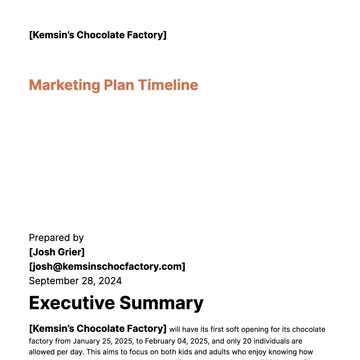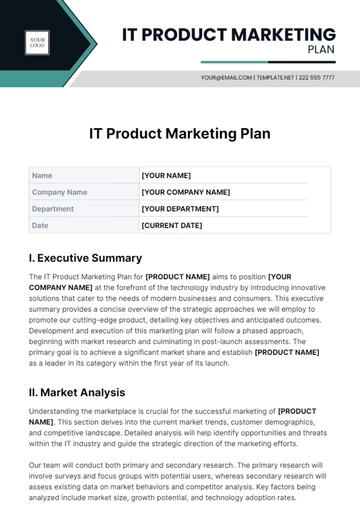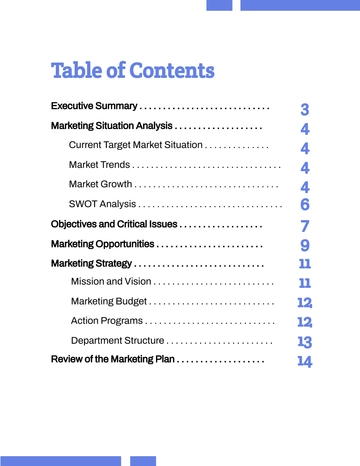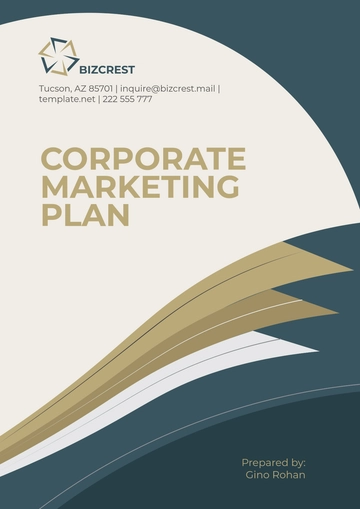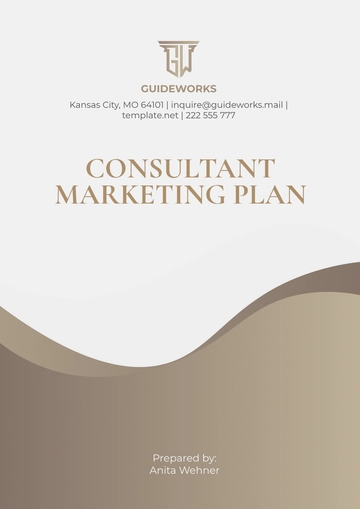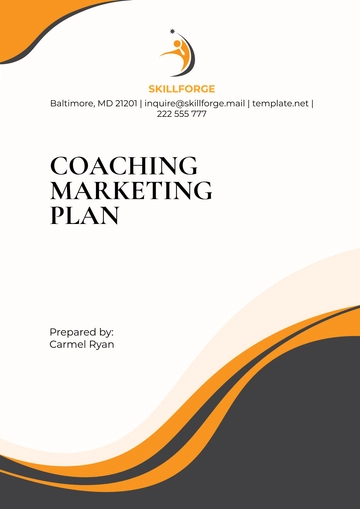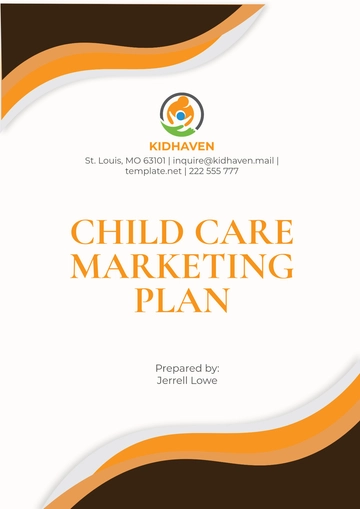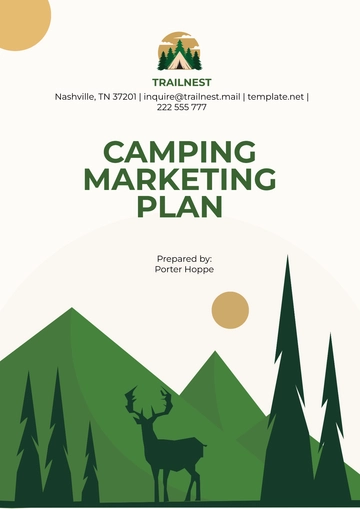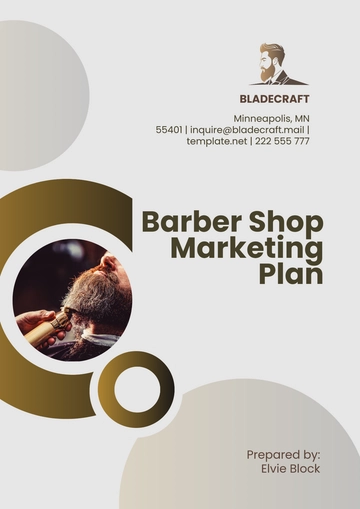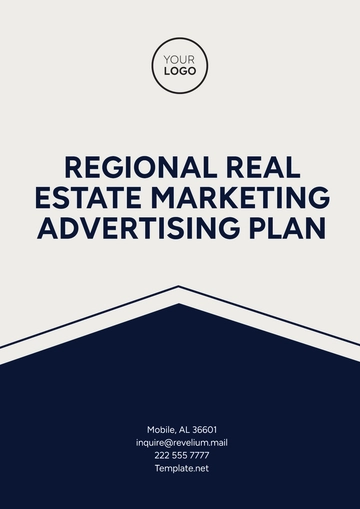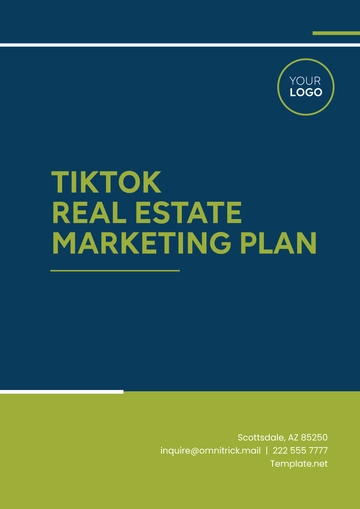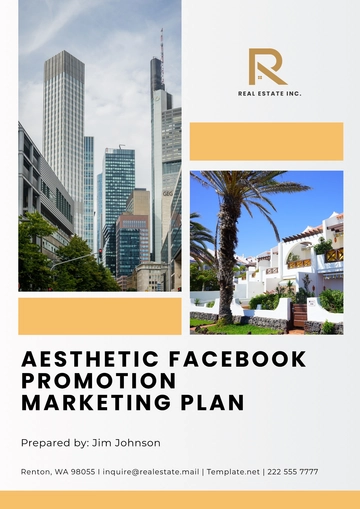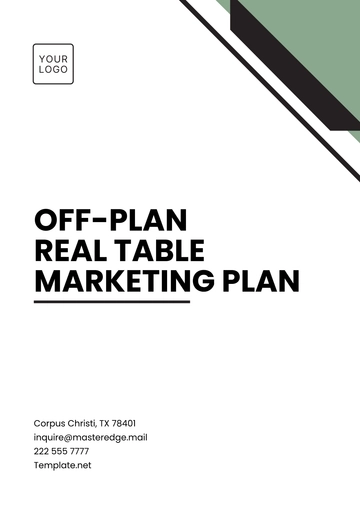Free 360 Marketing Plan
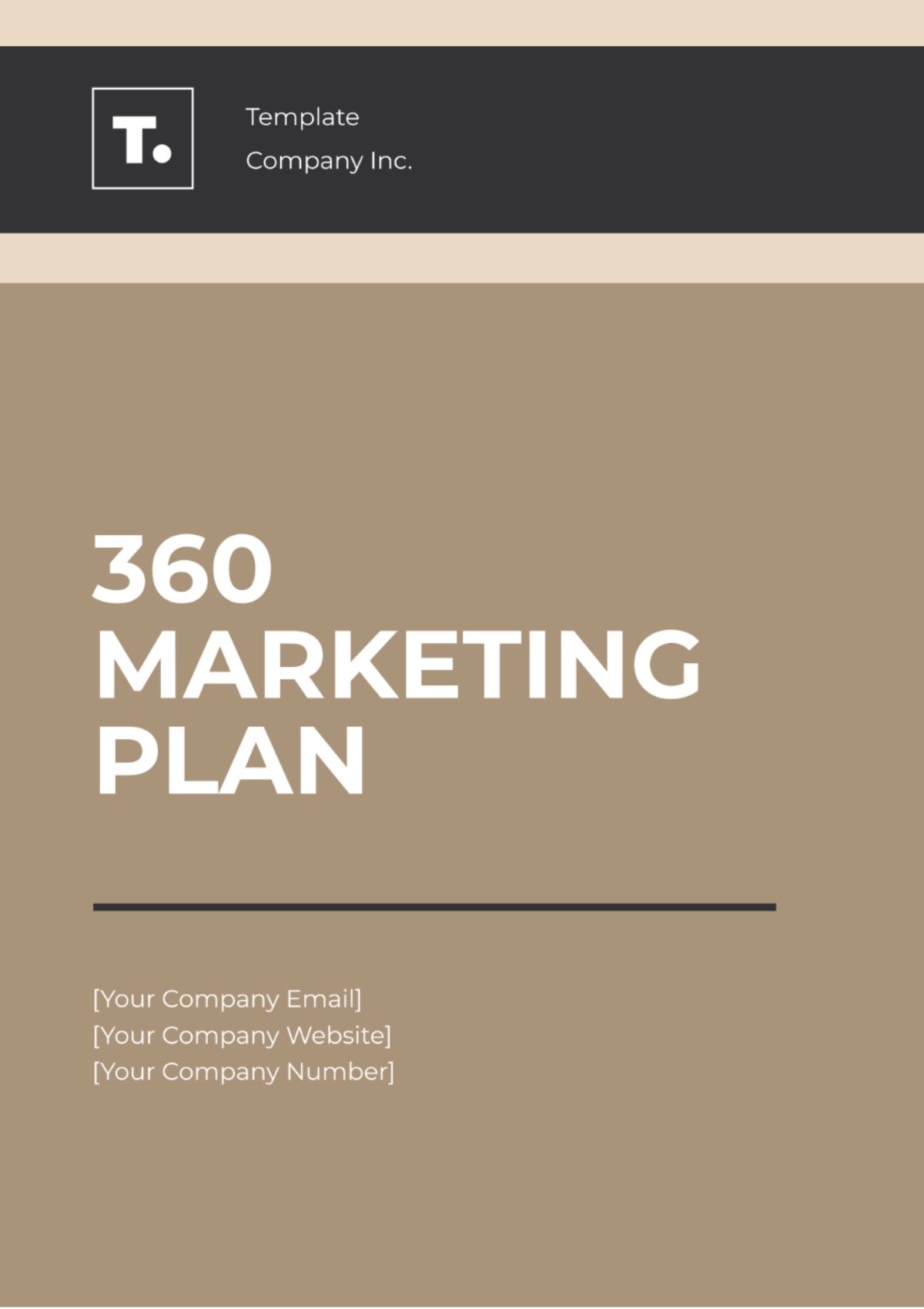
Prepared by : | [Your Name] |
Company : | [Your Company Name] |
Project Name : | Travel Expo 2050 |
I. Project Overview
The travel expo aims to provide attendees with an immersive experience showcasing diverse destinations, travel services, and experiences. From May 1-3, 2050, the event will feature interactive exhibits, informative seminars, engaging workshops, and networking opportunities for travel enthusiasts, industry professionals, and prospective travelers alike.
Through a combination of traditional advertising, digital marketing, public relations efforts, and strategic partnerships, the expo seeks to attract a diverse audience and position itself as a premier destination for all things travel-related. With a focus on content creation and customer engagement, the expo aims to deliver valuable insights, inspiration, and connections to attendees, fostering a deeper appreciation for the joys and possibilities of travel.
II. Traditional Advertising
Advertising Medium | Description |
|---|---|
Print Ads | Advertisements in local newspapers and travel magazines to promote the expo. |
Radio Ads | Partner with local radio stations to air commercials promoting the event and offering exclusive discounts for attendees. |
Billboards | Place strategically located billboards in high-traffic areas to increase visibility and drive awareness of the expo. |
III. Digital Marketing
Social Media Campaign: Launch a social media campaign across platforms like Facebook, Instagram, and Twitter to build anticipation for the expo. Share engaging content such as behind-the-scenes sneak peeks, exhibitor spotlights, and attendee testimonials. Utilize paid advertising to target users interested in travel and events.
Email Marketing: Develop a series of email newsletters to subscribers highlighting featured exhibitors, keynote speakers, and exclusive offers. Segment the email list based on interests and demographics to deliver personalized content.
Content Marketing: Create blog posts, videos, and infographics that provide travel tips, destination guides, and packing advice to attract and engage potential attendees. Optimize content for search engines to increase organic traffic to the expo website.
IV. Public Relations
Media Partnerships: Collaborate with local media outlets and travel bloggers to generate pre-event buzz and secure coverage of the expo. Offer exclusive interviews with keynote speakers or VIP access to attract media attention.
Press Releases: Distribute press releases to announce key details about the expo, such as featured exhibitors, special guests, and interactive activities. Target relevant industry publications and online news sites to reach a broader audience.
V. Events and Sponsorships
Pre-Event Launch Party: Host a pre-event launch party to generate excitement and networking opportunities among exhibitors, sponsors, and media partners. Offer exclusive previews of expo highlights and entertainment.
Sponsorship Opportunities: Partner with travel brands, airlines, hotels, and tourism boards to sponsor various aspects of the expo, such as stage presentations, workshops, or giveaways. Provide sponsors with prominent branding and recognition throughout the event.
VI. Content Creation
Content-Type | Description |
|---|---|
Expo Website | Develop a user-friendly website dedicated to the expo, featuring detailed information about exhibitors, schedules, ticketing options, and interactive maps. |
Video Content | Create promotional videos highlighting key attractions, including interviews with exhibitors, testimonials, behind-the-scenes footage, and virtual tours. |
Blog Posts | Produce informative blog posts offering travel tips, destination guides, packing advice, and exclusive insights from industry experts and keynote speakers. |
VII. Customer Relationship Management (CRM)
Implementing a robust CRM system is essential for managing interactions with attendees and maximizing their engagement with the expo. During registration, capture attendee data such as demographics, interests, and contact information to create detailed profiles. Utilize this data to personalize communications, recommend relevant exhibitors and sessions, and provide targeted offers and discounts. Throughout the expo, use the CRM system to track attendee engagement with various activities and touchpoints, such as booth visits, seminar attendance, and social media interactions.
Post-event, follow up with attendees to gather feedback through surveys and evaluations, thanking them for their participation and encouraging them to stay connected for future events. By maintaining a strong CRM strategy, the expo can nurture relationships with attendees and build loyalty, leading to increased attendance and satisfaction in subsequent years.
VIII. Analytics and Measurement
Effective measurement and analysis are crucial for evaluating the success of the travel expo and optimizing future marketing efforts. Utilize web analytics tools such as Google Analytics to track website traffic, user behavior, and conversion metrics leading up to and during the event. Monitor key performance indicators such as ticket sales, registrations, and booth reservations to gauge the effectiveness of marketing campaigns and promotional activities.
Additionally, leverage social media analytics to measure engagement, reach, and sentiment across various platforms. Post-event, conduct comprehensive evaluations using surveys, feedback forms, and attendee interviews to assess satisfaction levels, identify areas for improvement, and gather insights for future planning. By analyzing data on attendance, revenue, and return on investment (ROI), the expo can make data-driven decisions to enhance the attendee experience and drive greater success in subsequent iterations.
- 100% Customizable, free editor
- Access 1 Million+ Templates, photo’s & graphics
- Download or share as a template
- Click and replace photos, graphics, text, backgrounds
- Resize, crop, AI write & more
- Access advanced editor
Achieve comprehensive marketing success with the 360 Marketing Plan Template, available at Template.net. This all-encompassing tool enables you to strategize across multiple channels, from digital to traditional marketing avenues. Downloadable and printable, it facilitates seamless collaboration and alignment across teams. Editable in our AI Editor Tool, customization is intuitive, ensuring your marketing efforts are synchronized for maximum impact.

